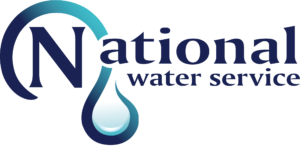Ways To Prevent Water Heater Disaster
Water heaters are a critical part of any family’s home. From enjoying a hot shower or a relaxing bath to having instant hot water for cooking and cleaning, water heaters help keep your home functioning. It’s not just about comfort but cleanliness and convenience. And yet, as much as a family values their hot water heater, do you know the water heater danger signs that precede failure?
When a hot water heater fails it can be more than just an inconvenience and a costly expense. Some hot water heater failures can result in disaster, from whole-house floods to risking an explosion. Although circumstances like this feel rare, it’s always important to have a system in place for water heater maintenance. Whether you maintain your water heaters yourself or work with a professional water company, it’s critical to manage them before disaster strikes. Browse our water heaters for sale to get an idea of the best model for you.
Here are six easy tips you can do to help prevent a hot water heater failure. And if you prefer, check out our infographic for the quick points.
Remove Sediment by Flushing the System
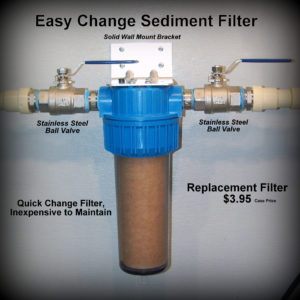
This is especially true in areas that have hard water. You may also have a water heater electrical failure, which can cause numerous other problems on its own, as well.
To avoid a total failure that results in a major leak, causing a house flood, it’s important to flush out your water heater annually. A local water company can also test your water and recommend if your water levels indicate a higher frequency of a total water heater flush.
Water Heater Danger Signs from Sediment Build-Up:
- Popping sounds
- Unusual noises
- Electrical failure
- Pinhole leaks
Insulate Your Water Heater Properly
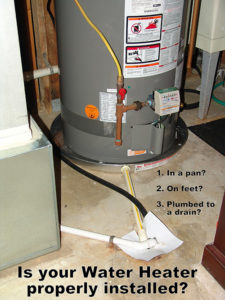
Always purchase an insulation kit or product specifically designed for hot water heaters. Talk with your local water company or plumber about insulation options and consult with them before completing the work yourself. While this may seem like a small and easy task it should be handled with care and the proper safety attention.
Water Heater Danger Signs and Tips to Avoid Improper Insulation:
- Keep the top of your water heater clear - do not attempt to insulate
- Pipe wrapping is not to be used within half a foot of a flue exhaust or gas draft hood
- The pilot light access should always be clear
- Air intake valves should remain open and free of any covering
- Do not insulate the drain, control panel, or temperature-pressure valve
Check for Rust to Avoid a Flood
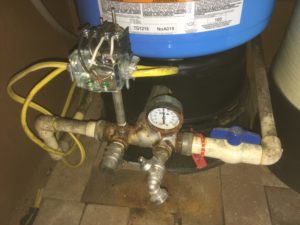
Differing water levels affect how quickly this rod corrodes. Hard water or the use of a water softener can cause this to corrode in only a few years. Call in for a replacement rod before your tank’s warranty expires and work with your water company to check your water levels to see if you can extend the life of the rod, therefore, extending the life of your hot water heater.
Water Heater Danger Signs for Possible Rust and Flooding:
- Corroded anode rod
- Check-in before the warranty expires
Monitor Gas Water Heaters for Leaks
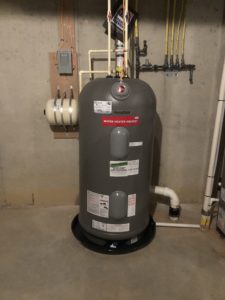
Most of the time, you can’t discern whether or not your water heater is leaking gas simply by taking a visual look, which is why this hot water heater failure prevention will require a few extra tools.
Always make sure you have a CO detector in your home and ensure it is working properly. Test this regularly and always replace the unit immediately if the battery fails or falls into disrepair for another reason. An annual inspection from your water company is also another way to confirm there has been no internal failure, causing the vent to stop working properly.
Water Heater Danger Signs and Tips to Protect from Gas Leaks:
- Always check to ensure there is no obstruction blocking the vent
- Have a working CO detector nearby
- Consult with a water company annually for thorough testing and inspection of the unit
Keep the Water Heater Area Clean
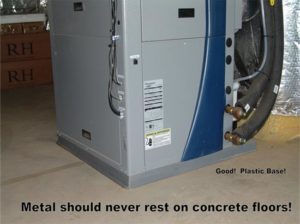
Gas water heaters can have minor leaks that can fuel a fire or electric units can have a small malfunction. To prevent against this disaster, check for and remove leaves, cobwebs, dust, cardboard, paper, or other items that may have gotten stacked around the unit. During your annual water equipment inspection have the water crew check your water heater and give it all the clear.
Water Heater Danger Signs and Tips to Protect from Fires:
- Dust around the area
- Remove leaves and other debris
- Do not store cardboard or other paper materials nearby
- Check the surface of the water heater and the bottom
Always Check the Temperature-Pressure Release Valve
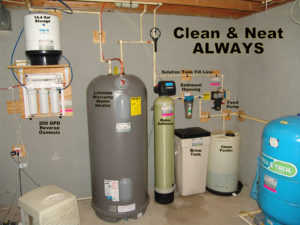
A temperature-pressure release valve mishap can occur due to a faulty connection, a weak spot in the connection, a valve that has gone bad, or other issues. What you want to do is check annually to make sure this fail-safe is still working properly. The local water company in your area can assist if you’re not sure how to check or if you’re cautious about testing.
Water Heater Danger Signs for Failing Temperature-Pressure Release Valve and How to Handle Maintenance:
- Exercise the valve once to twice by a year by ensuring water flows when the handle is open and it is stilled when the handle is closed
- Talk with your water company about completing the test during their annual water inspection

